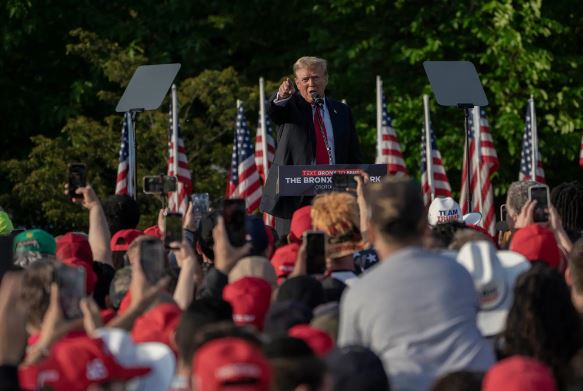Federal prosecutors on Friday night requested that the judge overseeing former President Donald J. Trump’s classified documents case restrict him from making any statements that could endanger law enforcement agents involved in the proceedings. This request followed what prosecutors described as “grossly misleading” assertions by Trump about the F.B.I.’s August 2022 search of Mar-a-Lago, his private club and residence in Florida.
Trump had falsely claimed on social media that President Biden had authorized the F.B.I. to use deadly force during the search, where agents found over 100 classified documents. This statement came after an F.B.I. operational plan for the Mar-a-Lago search was unsealed, which contained a standard reference to lethal force being authorized in emergencies. Prosecutors emphasized that Trump had severely distorted this routine provision.
They explained that the search was scheduled for a time when Trump and his family would be away and was coordinated with Trump’s attorney, Secret Service agents, and Mar-a-Lago staff. The plan also included contingencies for communicating with Trump if he were to arrive on the scene, which never occurred.
This request marks the first time that prosecutors from special counsel Jack Smith’s office have sought to limit Trump’s public statements in the classified documents case. Trump, who has a history of attacking witnesses, court officials, and others in his four criminal proceedings, is already under gag orders in two of his other cases. However, prosecutors did not request a full gag order in this instance. Instead, they asked Judge Cannon to revise Trump’s conditions of release to forbid any public comments that could pose a significant, imminent, and foreseeable danger to law enforcement agents involved in the investigation.
Should Judge Cannon agree to this request, Trump could face custody if he violates these revised conditions. Trump’s lawyers objected to the timing of the request, noting that it was made on a holiday weekend, but did not immediately respond to requests for further comment.
Prosecutors have shown increasing frustration with Trump and his legal team, particularly in response to Trump’s “intentionally false and inflammatory statements” about the Mar-a-Lago search. They emphasized that the language about lethal force in the F.B.I.’s operational plan was a “standard and unobjectionable” provision included in countless warrants nationwide, prohibiting deadly force except in cases of imminent danger.
To support their case, prosecutors reminded Judge Cannon of an incident that occurred days after the Mar-a-Lago search. Following Trump’s condemnation of the search on social media, an armed man in Ohio attempted to shoot his way into an F.B.I. field office near Cincinnati. The man, Ricky W. Shiffer, had called on “patriots” to defend Trump and kill F.B.I. agents. Shiffer was eventually killed in a shootout with local police.
Trump is already facing a gag order in another federal case in Washington, where he is accused of plotting to overturn the 2020 election. This case has been on hold as the Supreme Court considers Trump’s claim of immunity based on his presidential actions. Additionally, Trump is under a gag order in his state trial in Manhattan, where he has been charged with covering up a hush money payment to a porn star just before the 2016 election. In that case, the judge has twice held Trump in contempt and fined him $10,000 for threatening witnesses and jurors.
In this latest development, federal prosecutors are clearly aiming to prevent Trump from making further statements that could incite violence or endanger law enforcement agents, emphasizing the need for judicial intervention to maintain safety and order in the ongoing proceedings.

